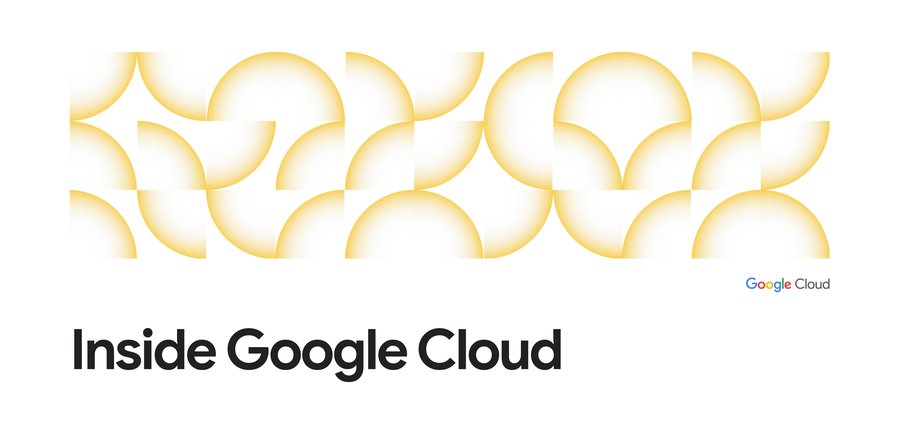Advancing healthcare with the Healthcare Interoperability Readiness Program
Aashima Gupta
Global Director of Healthcare Strategy & Solutions, Google Cloud
Amit Zavery
GM/VP, Head of Platform, Google Cloud
The 21st Century Cures Act, a United States law enacted at the end of 2016, mandates patient data interoperability for payers, providers, and healthcare organizations. As we approach rolling implementation deadlines, healthcare organizations are wrestling with how to liberate data from siloed systems—not only to give patients more granular control of their data, but also to improve outcomes by giving doctors a more complete view into their patients’ conditions.
The stakes are significant. Yet, in speaking with our customers, the number of healthcare organizations that feel prepared to meet these new requirements is small. Why is this the case? In short, providers and payers aren’t sure where to start. And with many critical applications running on legacy IT systems that aren’t built on modern web standards, the goal can seem daunting.
That’s why today, we’re launching the Google Cloud Healthcare Interoperability Readiness Program. The program is designed to help healthcare organizations:
Understand their current interoperability maturity levels;
Map out a stepwise journey to enable interoperability; and
Navigate changes and increase their readiness for the new Office of the National Coordinator for Health Information Technology (ONC) and the Centers for Medicare and Medicaid Services (CMS) rules.
With COVID-19 underscoring the importance of even more data sharing and flexibility, the next few years promise to accelerate data interoperability and the adoption of open standards even further—ideally ushering in new and meaningful partnerships across the care continuum, new avenues for business growth, and new pathways for patient-centered innovation.
Our program is built to meet customers wherever they are on their interoperability journeys, and to empower them with tailored services, technologies and strategies. We’re working with a variety of both consultants and ISV partners like Bain & Company, Boston Consulting Group, Deloitte, HCL Technologies, KPMG, MavenWave, Pluto7, SADA and 8K Miles Healthcare Triangle to meet our customers’ unique needs and support the changes needed to meet the upcoming regulatory requirements.
How is interoperability achieved?
Just as interoperability is foundational to achieving the transformational goals in healthcare for everything from telemedicine to app-based healthcare ecosystems, application programming interfaces, or APIs, are the foundation for interoperability. APIs have been around for decades and allow data to flow across disparate systems. Whereas older APIs were designed for bespoke integration projects, modern APIs are designed to be easy for developers and have become the standard for building mobile applications.
API management tools can put a security gateway between patient data and developers or apps, helping to protect a patient’s control over access to and uses of their data. And with API management, healthcare organizations can pursue the same sort of innovative models around healthcare data, while also applying governance and security controls, streamlining infrastructure complexities, and maintaining regulatory compliance and patient privacy.
In addition to APIs, implementation of open data standards—such as FHIR—is another critical step toward interoperability. We’ve worked closely with the U.S. Department of Health and Human Services (HHS) and collaborated across the tech industry to support open standards to electronically exchange healthcare information and build an ecosystem that supports data privacy, security, compliance, and API management.
How can the Google Cloud Interoperability Readiness Program help?
Google Cloud has long supported data interoperability and an API-based ecosystem to reduce friction surrounding healthcare data. Through our Healthcare Interoperability Readiness Program, we’ll help customers understand the current status of their data and where it resides, map out a path to standardization and integration, and make use of data in a secure, reliable, and compliant manner.
This program provides a comprehensive set of services for interoperability, including:
HealthAPIx Accelerator provides the jumpstart for the interoperability implementation efforts. With best practices, pre-built templates and lessons learned from our customer and partner implementations, it offers a blueprint for healthcare stakeholders and app developers to build FHIR API-based digital experiences.
Apigee API Management provides the underpinning and enables a security and governance layer to deliver, manage, secure and scale APIs; consume and publish FHIR-ready APIs for partners and developers; build robust API analytics, and accelerate rollout of digital solutions.
Google Cloud Healthcare API enables secure methods (including de-identification) for ingesting, transforming, harmonizing, and storing your data in the latest FHIR formats, as well as HL7v2 and DICOM, and serves as a secondary longitudinal data store to streamline data sharing, application development, and analytics with BigQuery.
Interoperability toolkit that includes solution architectures, implementation guides, sandboxes and other resources to help accelerate interoperability adoption and streamline compliance with standards such as FHIR R4.
As we reflect on the lessons of COVID-19, building resilient interoperable health infrastructure will not only be a catalyst, but table stakes for delivering better care. The Healthcare Interoperability Readiness Program aims to help free up patient data and make it more accessible across the continuum of care, as well as set up organizations for long-term success with more modern, API-first architectures. We’re eager to help payers, providers, and life sciences organizations navigate these changes—and ultimately save patient lives.




